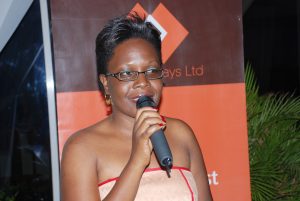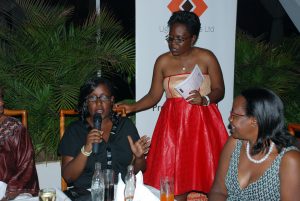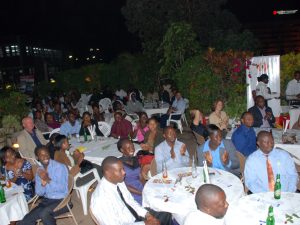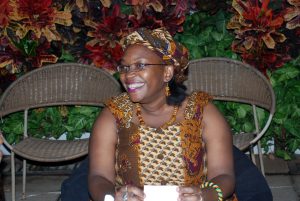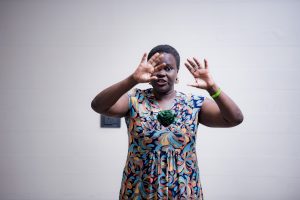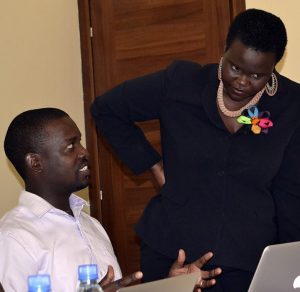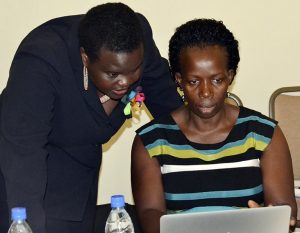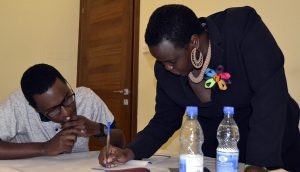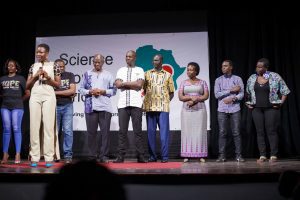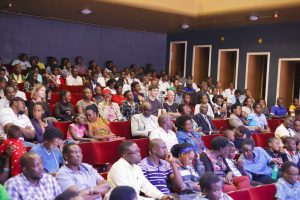A starless night, a breeze and a poetry home, brimming with minds agog with excitement. In August 2009, we launched the BN Poetry Award, at a lavish dinner in Kampala City. This award, an annual celebration of Ugandan women’s poetry, soared into the constellation, a new belief in poetry by Ugandan women. Like any event, Mcs, hosts and Chief guests, are often the cement of any occasion.
Sophia Aniku: (All photos by Buyondo)
Sophia Aniku with guests.
Cross section of guests from the arts, corporate and academic sector.
Sophia, a radio and television and radio personality who also manages a fashion house of Ankara and other well-sought after African clothing, was there to witness the first award-giving dinner of the BN poetry Award. She not only participated as a witness but she indulged us in her enviable gift of MC-ing. With Sophia, she emits charisma, confidence and elegance effortlessly. Always one to hold herself to high standards and employ admirable work ethics to her tasks, the BN Poetry Team, was highly blest to have her.
During a recent interview with her in celebration of ten years, Sophia reflected with alacrity and humor.
Interviewer: Sophia, what stood out on that evening of August 2009, during the launch of the BN Poetry
Award?
Sophia: For me, it felt like when you’re building a fire and you start with that first spark, and you know that there will be additional wood. It was definitely something that would grow over time. It was our little secret. People’s minds and spirits were tuned to that moment. It was intimate, quiet and special. People took it all in.
Interviewer: You have emceed at three of our BN Poetry award-giving dinners. For each of those times, what was a constant factor?
Sophia: The participants wanted to take ownership of it. They brought their families, interns fully participated and I do recall telling Stella Nyanzi to be quiet at one of those memorable evenings. There was such rich diverse members of the audiences, in age as well. The momentum kept building.
Dr. Stella Nyanzi at the 2009 BN Poetry Award.
Interviewer: You’ve worked and lived around Africa, Is there any insight into the poetry scene?
Sophia: In Abuja, House 33, there is a space owned by a playwright and screen play writer of Blood Diamond. This house provided opportunity for artists to come and express their work. He encouraged hard-core exchanges with passionate artists. Those kind of people should work with Babishai across the continent.
Interviewer: Whom do you think should read our children’s books?
Sophia: The children’s books are fabulous. Children need this very type of stimulation. The orgnic experience can be found in books.
Congratulations, Babishai. We are reaping the depth of the galaxy of poetry. We are our own sonnets. Babishai is the sonnet. The song to the word.
Thank you Sophia
